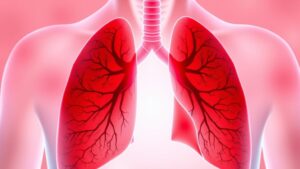As you’re facing end-stage MAC lung disease, every breath can feel like a conflict—your lungs strive to keep up, leaving you fatigued and inundated. You may notice worsening shortness of breath, relentless coughing, or sudden weight loss despite your best efforts. The fatigue becomes crushing, making even simple tasks feel impractical. But comprehending what’s transpiring—and knowing your alternatives—can help you reclaim some command when things feel unpredictable. Let’s investigate what to anticipate and how palliative care can alleviate the voyage.
What is MAC Lung Disease and Its Final Stages
As MAC lung disease reaches its final stages, it can feel overwhelming, but comprehension of what’s happening helps you take control. Your immune system response weakens, making it harder to fight infections, while lung function decline makes everyday tasks exhausting.
The bacteria damage lung tissue, leading to scarring and reduced oxygen intake. You may notice fatigue or a persistent cough worsening over time. Your body struggles to clear mucus, increasing infection risks. Staying informed about these changes lets you work with your care team to manage symptoms. Small adjustments, like pacing activities, can ease the strain. Emotional support matters too—talking through fears helps. While the disease progresses, focusing on comfort and quality of life keeps you empowered in your path.
Severe Shortness of Breath and Respiratory Distress
Severe shortness of breath and respiratory distress become more common as MAC lung disease progresses, making even simple activities feel impossible. You may struggle to walk across a room or even talk without gasping for air. This happens because your lungs can’t get enough oxygen, and the damage makes breathing harder over time.
Oxygen therapy helps ease breathing by delivering extra oxygen through a mask or nasal tubes. Continuous monitoring tracks your oxygen levels to catch drops before they worsen. Sitting upright or leaning forward can open your airways slightly, giving temporary relief. Small, frequent meals prevent overloading your lungs while eating. Avoiding smoke, dust, or strong smells reduces triggers that worsen breathing.
Your care team will adjust treatments to keep you as comfortable as possible. Every small step counts in managing this challenge.
Chronic Cough and Increased Mucus Production
As MAC lung disease reaches its later stages, you could notice a stubborn cough that persists, along with thicker mucus that’s more difficult to clear. This happens because the infection irritates your airways, causing inflammation and excess mucus production.
You might feel chest discomfort as the cough becomes more frequent, making it harder to breathe comfortably. The mucus can also clog your airways, increasing your oxygen therapy needs. To manage this, try staying hydrated to thin the mucus, using a humidifier to ease irritation, and practicing controlled coughing techniques. Your doctor may recommend medications to loosen mucus or reduce inflammation.
Avoid irritants like smoke or strong fumes, which can worsen symptoms. Elevating your head while sleeping can also help reduce nighttime coughing.
Fatigue and Progressive Weakness
Fatigue and progressive weakness often become more noticeable as MAC lung disease advances. Your body works harder to breathe, leaving you with reduced stamina for daily tasks. Even simple activities like walking or dressing could feel exhausting, and you might notice increased sleep needs to cope.
- Energy drains quickly: You tend to tire after short bursts of activity, needing frequent rest.
- Muscles feel heavy: Weakness can make lifting objects or climbing stairs difficult.
- Breathing steals energy: Labored breathing uses up strength, leaving less for other tasks.
- Rest doesn’t fully recharge: Sleep may feel less invigorating, no matter how long you rest.
- Pacing becomes essential: Breaking tasks into smaller steps helps conserve energy.
This fatigue isn’t laziness—it’s your body signaling it needs extra care. Listening to these cues helps you manage better.
Weight Loss and Nutritional Challenges
As MAC lung disease progresses, your body burns more calories merely to keep up with the effort of breathing, which can lead to unexpected weight loss. You may notice clothes fitting looser or feeling weaker even when eating normally.
To combat this, focus on calorie dense foods like nut butters, avocados, and full-fat dairy to pack more nutrition into smaller portions. Try meal planning strategies such as eating smaller, frequent meals or adding protein shakes between meals. Keep easy snacks nearby for low-energy days.
Staying hydrated helps too, but avoid filling up on liquids before meals. Work with a dietitian to tailor a plan that fits your needs and preferences, making it easier to maintain strength and energy.
Palliative Care Strategies for Comfort and Support
As managing the later stages of MAC lung disease, comfort and quality of existence become the primary focus. Palliative care helps ease symptoms and provides emotional support for you and your loved ones.
- Pain management: Medications and therapies reduce discomfort, making breathing easier.
- Caregiver support: Your family or caregivers get guidance on how to assist you best.
- Spiritual counseling: Should it matter to you, chaplains or counselors offer comfort and peace.
- Oxygen therapy: Extra oxygen relieves shortness of breath, helping you stay active for longer.
- Emotional care: Social workers or therapists help you process feelings and reduce stress.
Palliative care isn’t about giving up—it’s about existing as fully as possible with dignity and support.
Conclusion
So there you are, gasping for air like a fish out of water, coughing up enough mucus to rival a horror movie, and losing weight faster than your motivation on a Monday. End-stage MAC lung disease isn’t exactly a picnic—but hey, at least palliative care can make the ride slightly less miserable. Oxygen, snacks, and a team that actually listens? Almost makes you forget your lungs are staging a mutiny. Almost.





